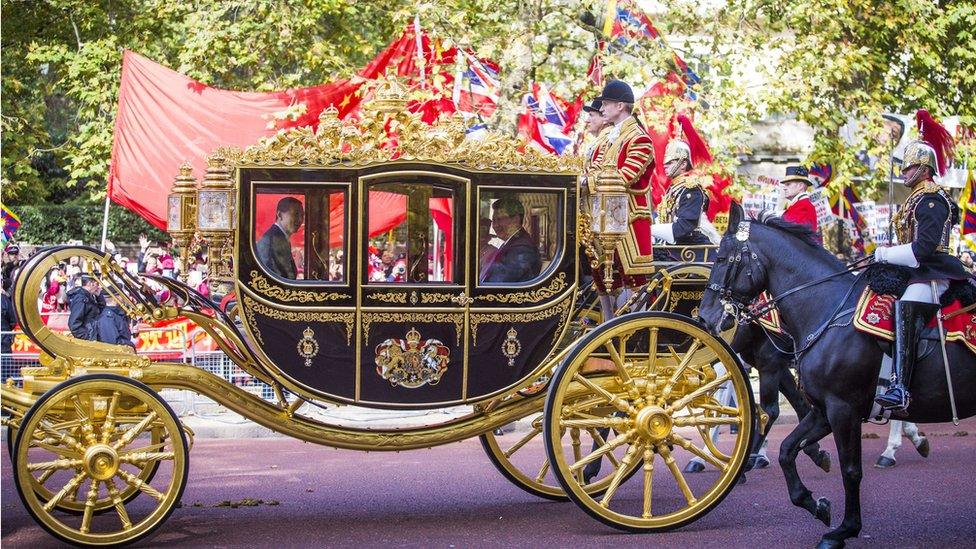Donald Trump state visit: How to navigate awkward small talk
- Published
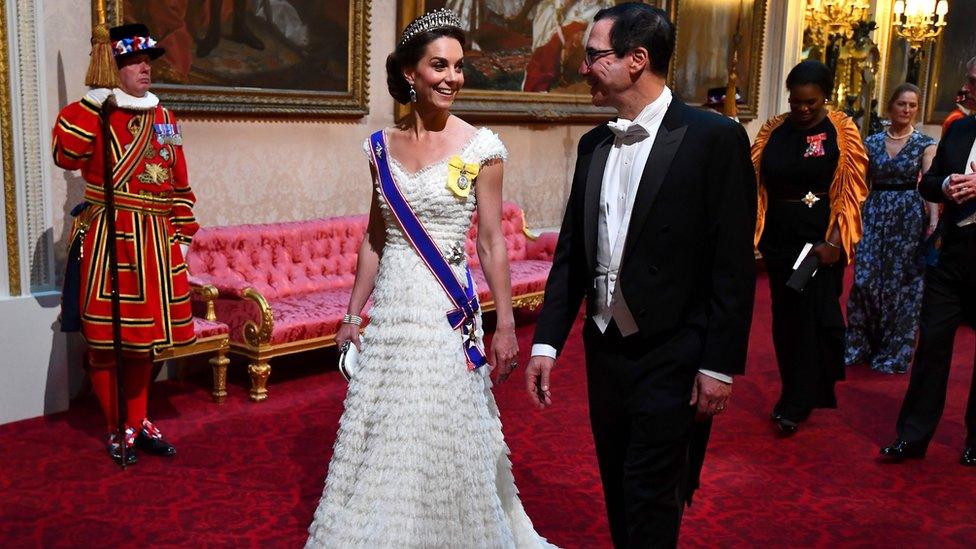
The Duchess of Cambridge was partnered with US Secretary of the Treasury Steven Mnuchin for the royal procession
The sight of Theresa May's husband Philip and First Lady Melania Trump hosting a garden party at Number 10 and the Duchess of Cambridge and the US secretary of the treasury walking side-by-side into the state banquet at Buckingham Palace might leave you wondering - what on earth did they find to talk about?
Regardless of how strange these pairings seem, in fact everything had been meticulously planned.
It is traditional for the Queen and the visiting head of state to sit next to one another and be partnered for the royal procession into the banquet - and the same goes for their spouses.
But the other pairings were decided by conversations between the palace, the US embassy, the White House and the British government, says the BBC's royal correspondent, Daniela Relph.
She says these are generally based on the status of the individual. So while it may seem odd that the younger royals - Catherine and the Duke of Cambridge - were not seated with Donald Trump's children, partnering Prince William with the prime minister may have been seen as more appropriate.
"Clearly in terms of shared interests and age they might have had more interesting conversations sitting next to Ivanka and Jared," our correspondent says.
"But at the end of the day William will be king one day, so pairing him with a more high-profile figure was probably more fitting."
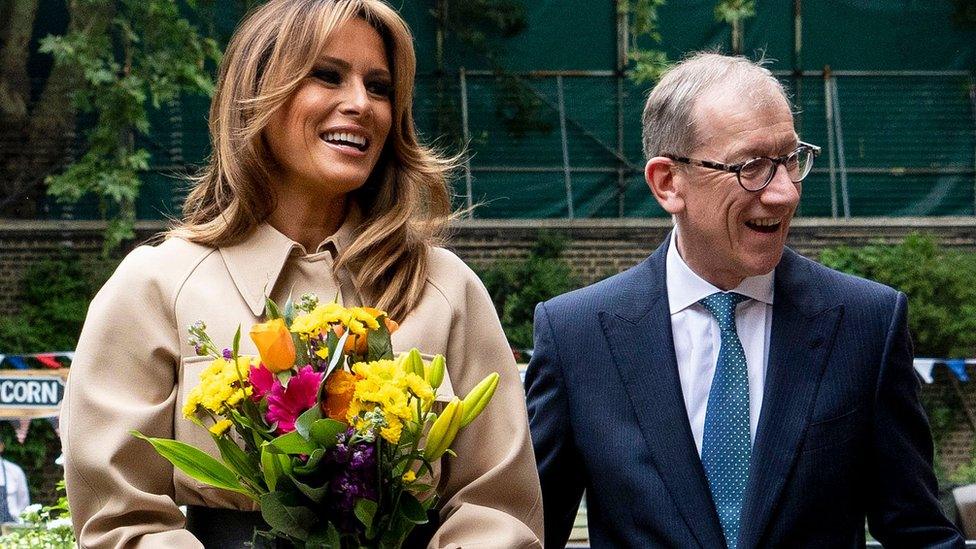
Philip May and Melania Trump attended a garden party at Number 10 together during the state visit
Pairing your guests on the basis of their status - rather than what they might have in common - could lead to some awkward silences.
So what is the key to making conversation with people you have very little in common with?
Communications expert and author of The Art of Conversation, Judy Apps, says it is important to keep to "safe topics" and avoid personal questions - at least initially.
"Just start with the most basic things, which are often external - how was your journey, for example," she says.
"You might say these are boring - but they are absolutely fine to start with."
"Then move on to asking the person something about themselves, like how they are enjoying the day.
"That sometimes gives you a clue about the person or something they're interested in and can spark a conversation subject or common interest."
The royals may be experts at small talk but our correspondent says all the key figures would still have been briefed by the Foreign Office on safe conversation topics.
But this doesn't mean they all shy away from the more controversial topics.
President Trump told ITV's Good Morning Britain that the Prince Of Wales raised their differing views on climate change during their meeting at Clarence House on Monday.
However, our correspondent says generally the royals would normally avoid talking about politics.
"I would be shocked if Prince Charles shared his opinions on Brexit," she adds.
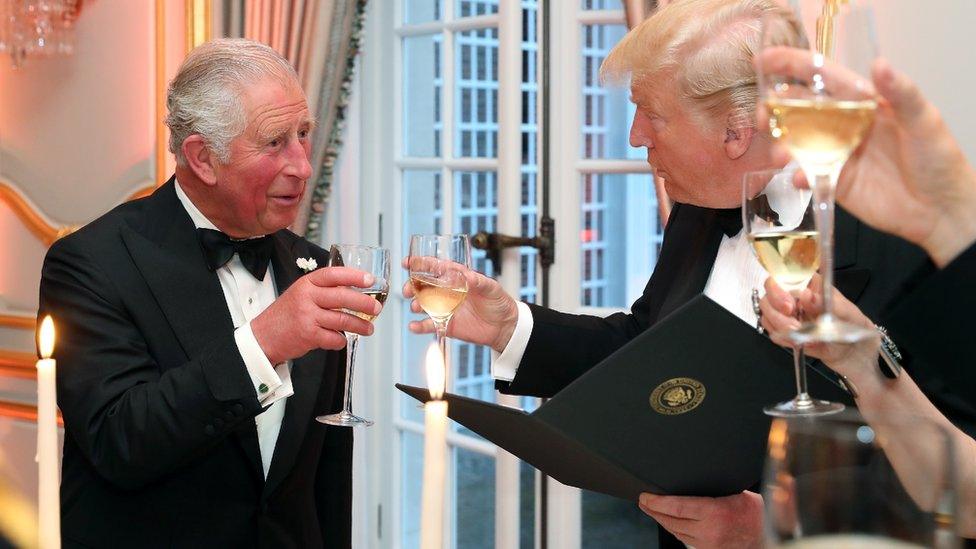
Donald Trump said climate change came up in his discussions with Prince Charles
Judy Apps says being able to navigate away from dangerous topics can depend on how much homework you have done and what you know about the person.
"It can be tricky if the other person brings up a difficult topic that you disagree on, but just try to steer the conversation," she says.
She adds that distractions can be a useful tool: for example, commenting on your surroundings, as a way of moving on to a different subject.
However, she says good body language is often just as important as what you say.
"As long as you keep a sense of rapport - smile, keep eye contact - you can still avoid just being a doormat in what you're saying," she says.
"Then whatever you do or don't say they will feel more comfortable with you."
She adds that matching the other person's demeanour can also help them feel at ease, for example by speaking at the same pace or having the same posture if you are both sitting down.
The Queen discusses the Chinese state visit with Commander Lucy D'Orsi
Our correspondent says while the "mood music" during Mr Trump's state visit suggested it had gone smoothly, other visits can be "a total nightmare".
"Language barriers can be a real problem," she says, adding that this was a particular issue during the 2015 state visit of Chinese President Xi Jinping.
The Queen was even caught on camera the following year saying that Chinese officials were "very rude" to Britain's ambassador to China during the visit.
'Not a natural small-talker'
While Mr May and Mrs Trump might appear to be very different personalities, an Anglo-American themed garden party for the pair - as their other halves had lunch inside Number 10 - seemed to avoid awkwardness.
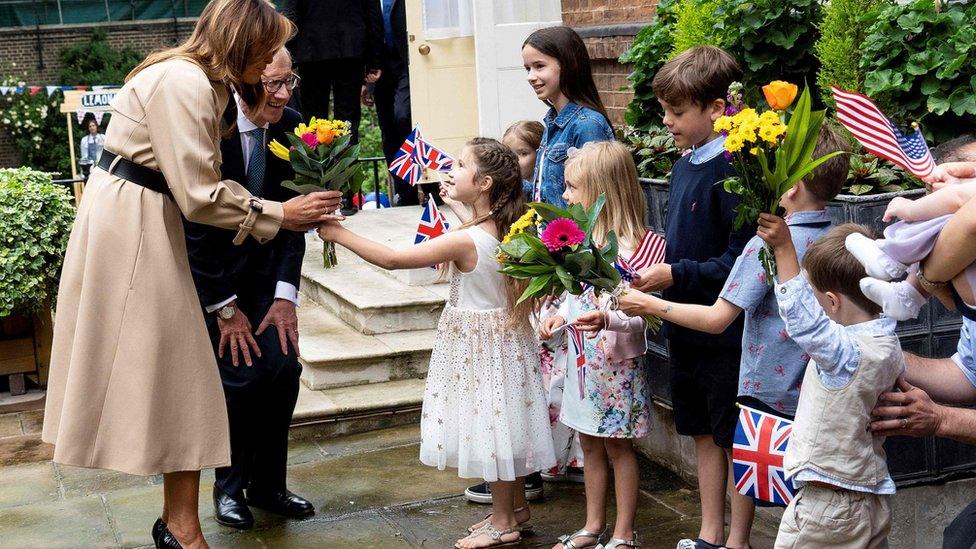
Mrs Trump and Mr May met children of US embassy and Downing Street staff at a garden party at Number 10
Our correspondent says the event was probably planned to make the First Lady feel at ease, as much of her campaigning in the US focuses on child-related issues.
"When you observe her she's not a natural small-talker," Daniela says. "But she's clearly much more comfortable when she's with kids and young people."
She adds that while state visits can be "quite a stilted affair", in this case, on the surface everyone seemed to get on surprisingly well.
"That's the joy of the state visit - seeing such different characters interacting."
- Published4 June 2019
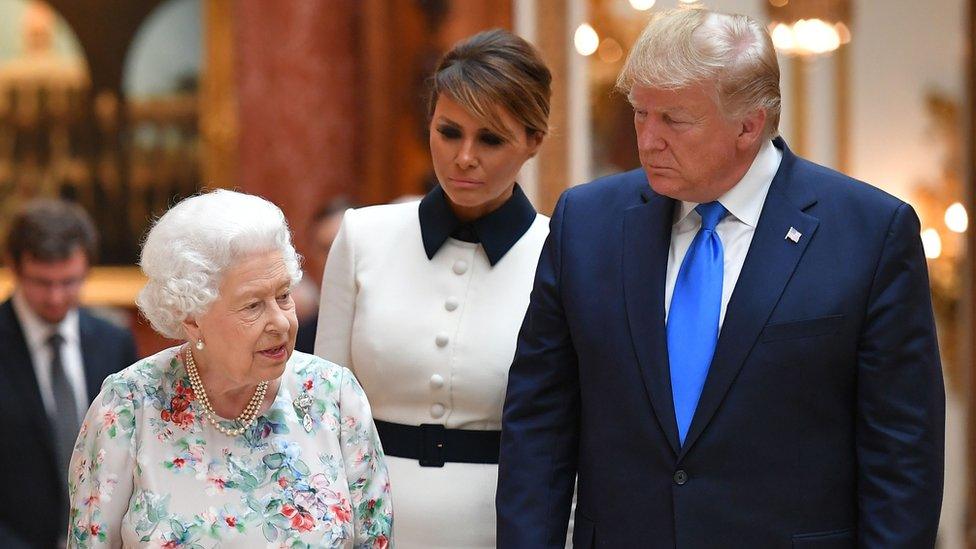
- Published3 June 2019
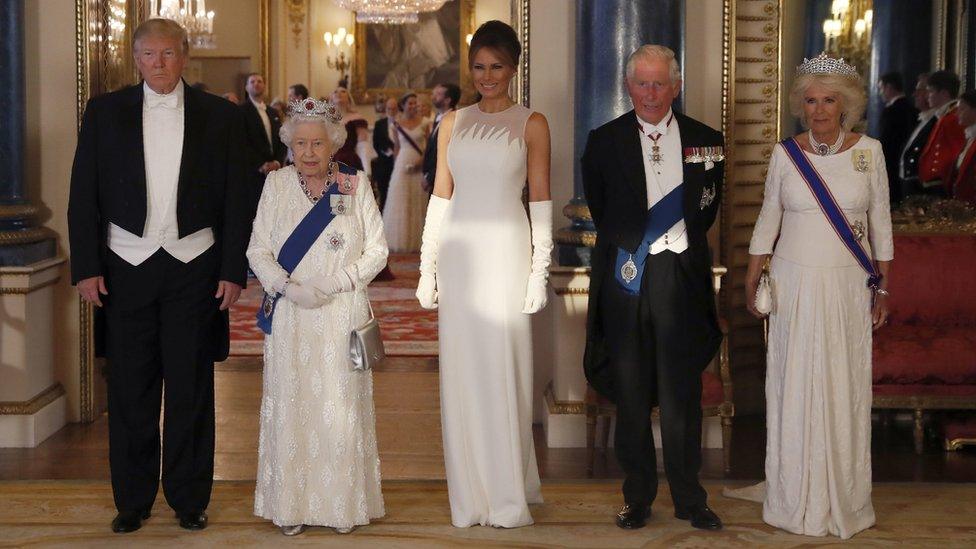
- Published4 June 2019
